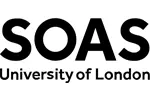About Newcastle University
Newcastle University is ranked one of the best in the UK for teaching and learning. We are also a world-leader in academic excellence and original research.
- Meet us at one of our events.
- Chat to us live to find out more about studying at Newcastle University
- Search our funding database to discover funding opportunities.
- See our courses to find your degree.
Our University is situated on a single-site campus and combines the best aspects of a strong campus identity with its location in the centre of a lively and cosmopolitan city.
At Newcastle our aim is simple: to inspire our students through teaching and research, and create an exciting yet supportive environment in which to study. We currently have over 5,000 international students from more than 120 countries, representing a multicultural and valued part of our academic community.
Study Opportunities
Newcastle has an international reputation for excellence in teaching and research. Newcastle offers over 300 postgraduate and 200 undergraduate programmes, and offers a multitude of research opportunities. Newcastle places a strong emphasis on research and much of the work we do is internationally acclaimed. We are committed to retaining our position as one of the UK's leading research intensive universities.
Research Excellence and Research Degrees
As a student at the University you will benefit from studying within a dynamic research environment with state-of-the-art equipment and facilities. The University has an outstanding reputation in research across a wide range of disciplines and this was demonstrated by the publication of the most recent Research Assessment Exercise (RAE), which showed that our research is world leading or internationally excellent in 38 subject areas, spanning the arts, sciences and humanities. Please visit our research site for further information.
We will support you in your studies by providing you with comprehensive training in both generic skills and competencies associated with your personal and career development, alongside specific skills needed for your research project.
Facilities
As a student at Newcastle you will have access to some first-class academic facilities, providing you with the best learning environment possible.
The INTO Centre provides opportunities and support for language learning for all members of the University. There is a range of English language programmes for international students as well as resources and facilities for foreign language learning in general.
The University also provides an excellent range of social activities. The Students' Union lies at the heart of the campus, and supports over 170 student societies and the Student Advice Centre which helps with a wide range of issues. The award-winning Careers Service supports Newcastle students with all aspects of career planning throughout their degree and for up to 3 years after graduation. One of the largest careers services in the UK, they work with over 80 of the employers which are featured in The Times newspaper's Top 100 Graduate Employers list. They can also assist with part time employment through their Vacancies Online service. Newcastle University is in of the top 16 universities for sport in the UK and offers a programme of activities at all levels through the Athletic Union and the Centre for Physical Recreation and Sport.
The City of Newcastle
Newcastle is one of the most exciting, friendly and cosmopolitan cities in the country and is fast becoming an internationally renowned centre of culture.
Newcastle has an international airport and is less than 3 hours by train from London. There is an extensive bus network and underground metro transport system with stations close to the University campus, making transportation around the city quick and easy. Newcastle is a fairly inexpensive place for students to live compared with many other places in the UK.
Accommodation
All our student accommodation sites are situated within easy reach of the University campus and city centre. There is a range of catered and self-catered accommodation to choose from and family accommodation is also available. International students are guaranteed accommodation in their first year of study provided the application is submitted before the specified deadline. For more information please visit the Accommodation webpages
International Community
We have a long tradition of attracting students from all over the world and currently have students from just from over 110 countries outside the UK. This creates a dynamic environment, culturally, socially and academically, and means we are very experienced in helping international students to get the most from their studies. For more information please visit our international site.
Funding and Fees
Newcastle University offers a range of scholarship schemes to give students financial support through their studies, with eligibility assessed on a case-by-case basis.
Details of our current tuition fees, bursaries and scholarships are provided on our undergraduate and postgraduate websites.
Finding out more
For further information on opportunities at Newcastle and to order a prospectus or a course brochure, visit our enquiries request page or telephone + 44 (0)191 208 3333.











